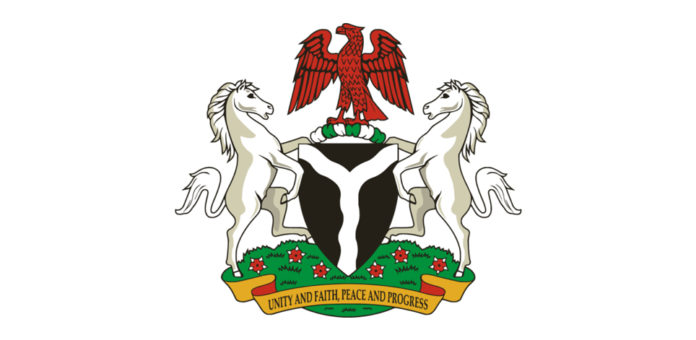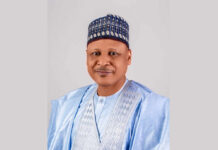By Mfon Udott
When President Bola Ahmed Tinubu unveiled the Action Plan for his administration, he stated that he and his deputy, Vice President Kashim Shettima, have traversed every part of Nigeria, listening to the concerns raised by Nigerians, “young and old, poor and rich, educated and uneducated, Christian and Muslim.
“All have expressed their views and concerns. People do not seek superficial answers to hard questions, nor do they want the broken, unimaginative, failed promises repackaged and fed to them again. They want true and innovative solutions that address the challenging realities of today,” he added
The Renewed Hope Agenda of the Tinubu administration is an all-encompassing and well-integrated policy package that could make Nigeria a major player on the global stage if implemented to the letter. One of the agenda’s core priorities is to reform the economy for sustained inclusive growth. It aims to create a robust and diversified economy by fostering an environment conducive to investment and innovation—stimulating growth across all sectors, enhancing equitable wealth distribution, and reducing unemployment.
One of the major policies adopted by the administration to achieve these objectives is the recalibrated and strengthened Micro, Small, and Medium Enterprises (MSMEs) scheme. The passion with which the current administration is running the scheme demonstrates the political will to grow the economy at a geometric rate.
At the helm of this vital initiative is a young, innovative, and dynamic gentleman, Mr. Temitola Adekunle Johnson, who has championed the growth and expansion of the MSMEs project. He has successfully nurtured the scheme from inception, introducing pragmatic and innovative ideas that distinguish it as one of the government’s flagship programmes empowering Nigerians and driving economic growth from the grassroots.
Designed to improve Nigeria’s economic climate, the MSMEs initiative seeks to restore the nation’s economy, enhance industrialization, and revitalize the manufacturing sector. It aims to create jobs, promote exports, and upgrade the skills of Nigerians. The incorporation of key government agencies into the scheme to facilitate its smooth operation further underscores its importance.
At the MSMEs Clinic, manufacturers and other stakeholders engage directly with agencies such as the Ministry of Industry, Trade and Investment, the Small and Medium Enterprises Development Agency of Nigeria (SMEDAN), the Federal Inland Revenue Service (FIRS), the Standards Organisation of Nigeria (SON), the National Agency for Food and Drug Administration and Control (NAFDAC), the Bank of Industry (BOI), the Bank of Agriculture (BOA), the Development Bank of Nigeria (DBN), and the Corporate Affairs Commission (CAC), among others. The objective is to eliminate bureaucratic bottlenecks, streamline regulation, and improve the ease of doing business across the country.
Under the supervision and guidance of a man with a microscopic vision for economic growth. With Vice President Shettima’s transparency, astuteness and political acumen, the MSMEs scheme has grown substantially, contributing to economic stabilization.
The Vice President had announced a ₦200 billion intervention fund for MSMEs at the 31st edition of the Nigerian Economic Summit, signalling the Tinubu dministration’s resolve to elevate MSMEs to a level where they can significantly boost the economy, grow the nation’s GDP, and address structural challenges within the business ecosystem. Shettima emphasized that the decision was guided by the administration’s resolve to rekindle hope among poor, vulnerable, and unemployed Nigerians by creating avenues, especially for youths to access loans, grants, and equity investments.
“As a people-oriented government, our priority remains restoring hope to the unemployed, the poor, the excluded, and the vulnerable. We have created pathways for young Nigerians to access grants, loans, and equity investments of up to $100,000 to scale their enterprises, innovate, and build sustainable livelihoods. We established a ₦200 billion intervention fund to support micro, small, and medium enterprises and manufacturers, helping them overcome structural challenges and enhance competitiveness,” the Vice President declared at the summit.
This laudable decision underscores the administration’s readiness and commitment to strengthening MSMEs, given their critical role in global economic development and job creation. It is estimated that about 600 million jobs will be needed globally in the next fifteen years, and in developing economies, most formal jobs are generated by MSMEs—accounting for nearly four out of every five available jobs. Moreover, MSMEs help expand the government’s tax base, increase market competition, and improve business quality, benefiting both suppliers and consumers.
As Chairman of the National Economic Council and Chief Economic Adviser to the President, Vice President Shettima’s support for MSMEs is both germane and commendable. His nationwide engagements, rallying state governments to build shared facilities that enhance MSMEs’ operations, further demonstrate his commitment to a balanced, stable, and resilient Nigerian economy.
By Mfon Udott






